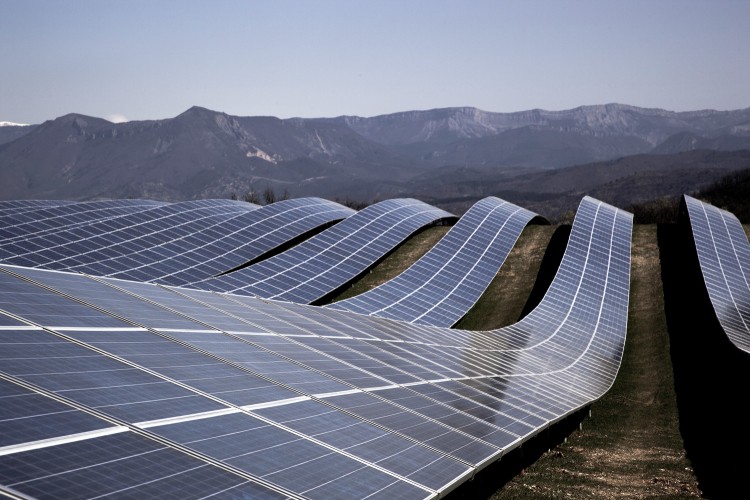Retired Lt. Gen. Mike Flynn kept pushing a massive nuclear power deal involving Saudi Arabia and Russia even after he (briefly) became president Donald Trump’s national security advisor, the Wall Street Journal reported Wednesday.
Also on Wednesday, the House Oversight and Government Reform Committee released letters from executives confirming that Flynn traveled to the Mideast in 2015 “to meet with foreign leaders about a proposal to partner with Russia in a scheme to build nuclear reactors in Saudi Arabia.” Flynn was advising the executives on the deal.
The Committee’s ranking Democratic member, Rep. Elijah E. Cummings (MD) and Rep. Eliot L. Engel (NY), the ranking Democrat on the House Foreign Affairs Committee, have now sent a letter to those executives telling them their responses are being passed on to Special Counsel Robert Mueller, who is investigating the Trump campaign’s ties to the Russian government.
“Based on your responses, it appears that General Flynn violated federal law by omitting this trip and these foreign contacts from his security clearance renewal application in 2016 and concealing them from security clearance investigators who interviewed him as part of the background check process,” the letter says. Cummings and Engel said the responses also raise the question of whether Flynn kept pursuing this scheme even after he became national security advisor, “without disclosing his foreign travel or contacts.” The two House members indicated they are seeking more information.
The Wall Street Journal reports that Flynn did in fact keep promoting the Saudi nuke scheme after he joined the Trump administration, “according to former security-council staffers and others familiar with the effort.” The Journal quotes a former staffer saying that Flynn’s moves were “highly abnormal” and “not the way things were supposed to go.”
Putting aside Flynn’s alleged activity, the dimensions of the proposed scheme are mind-boggling. A must-read June article in Newsweek — which spurred Cummings and Engel to investigate Flynn’s business partners — explains that the goal was to build and run dozens of nuclear plants in Saudi Arabia and the Middle East.
The Russians would provide the nuclear fuel and take back the spent-fuel waste, an end-to-end operation designed to ensure nothing got diverted towards a nuclear weapons program. “It was always part of the project that Russia’s involvement… would tilt Russia away from Iran,” wrote the chief economist of ACU, one of the lead companies, in an email obtained by Newsweek.
Also, the scheme would “revive the U.S. nuclear industry,” while costing American taxpayers nothing, Newsweek explained. How? A memo by ACU (also obtained by Newsweek) explains it would be “funded entirely by Saudi Arabia and other Gulf countries.”
A project insider told Newsweek it would cost the Saudis “close to a trillion dollars.”
That figure may seem improbably high, and unsurprisingly the Saudis do not appear to have been sold on the deal, but the fact is nuclear power plants are really expensive, as we’ve reported.
Just last week, the Washington Post reported that, after two years of negotiations, Russia had finalized a deal to build Egypt’s first nuclear power plant. The 4-reactor plant will cost a whopping $30 billion — but Russia will loan Egypt 85 percent of the money. That is vastly more expensive than new natural gas plants or even new solar and wind, which are winning power contracts around the world for a fraction of that cost, without subsidies.
Here in the United States, two South Carolina utilities abandoned construction of two nuclear plants last month after spending some $9 billion, in part because the latest projections gave at least a three-year delay and a total cost of $25 billion.
So nuclear power plants are very expensive to buy — and they aren’t cheap to operate either. As we’ve reported, over half of existing US nukes are “bleeding cash,” according to Bloomberg New Energy Finance
But this hasn’t slowed down the Saudis. Reuters reported Thursday that “Saudi Arabia is expected to launch a tender process for its first nuclear reactors as early as next month.”
Reuters quotes a “South Korea-based industry source with direct knowledge of the matter” that the Saudis would issue a Request for Information for two plants next month “to five potential bidders – South Korea, China, France, Russia and Japan.” The government is considering as many as 17 reactors.
Somebody is going to make a great deal of money building plants, fueling them, operating them, and then dealing with the waste.
In the meantime, someone might suggest solar power to the Saudis. It’s a lot cheaper.


